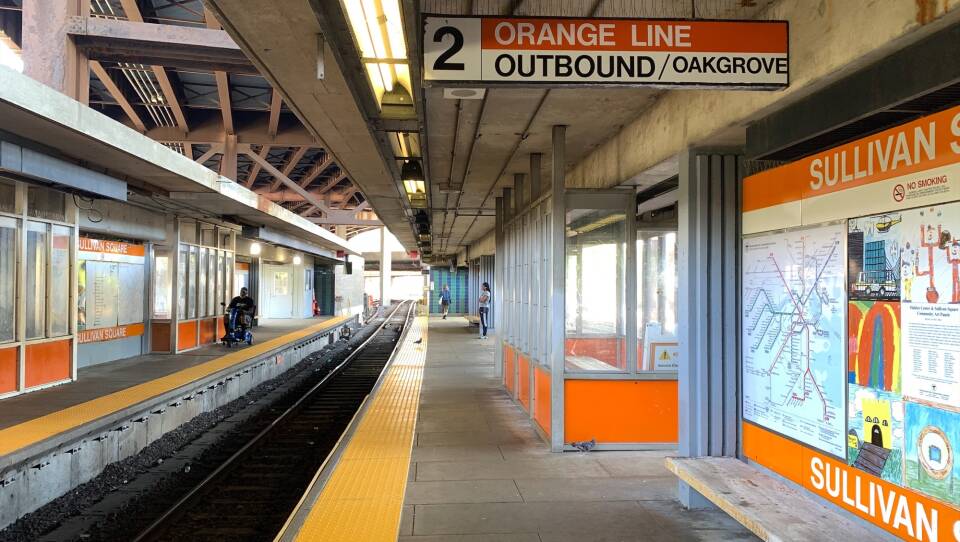It's official: The MBTA is planning to shut down the beleaguered Orange Line for 30 days starting on Aug. 19 to repair the line.
But while the hope is that the shutdown results in long-term solutions, the pause is going to cause major changes for riders. And organziations and institutions around Boston are doing their best to figure out what exactly comes next.
One of the groups that's going to be impacted the most are college students, with schools like Bunker Hill Community College and Roxbury Community College both located near Orange Line stops.
The shutdown will overlap with Bunker Hill's fall semester by two weeks. Pam Eddinger, the college's president, stressed that what's needed right now are the substitute bus plans so that she can share those details with her students — nearly 90% of whom rely on the Orange Line to get to campus — and the community.
"But once an alternative plan of travel is established, my students will be stabilized," she said. "So the key is get me those plans as soon as you can and that will solve my problem."
Still, Eddinger is optimistic about the long-term impact of the closure.
"Sooner or later we're gonna have to get the darn thing fixed," she said. "And the sooner that they get it fixed, the better it is for my students, for employees. And frankly, we're just one of three or four colleges along the Orange Line. We've got to get this thing fixed."
Others are more concerned.
New Boston Public Schools superintendent Mary Skipper said at a press conference that she's concerned about how the hiatus will affect school staff, especially those who work at schools where there is little parking.
"Staff rely on the MBTA," she said. "So we have to look at it from not only the student and the family, but also the staff so that our classrooms are staffed properly."
Richard Dimino, president and CEO of urban planning group A Better City, said the Orange Line corridor is the region's most transit-dependant stretch. Speaking on GBH's All Things Considered, he questioned how bus and commuter rail service will support the thousands of small businesses that depend on Orange Line riders for customers. He worries the temporary closure will hurt those businesses.
"We're telling folks, 'Sorry, don't come in here, go find an alternative service,'" he said.
Still, even with the challenges the shutdown is bound to bring, Boston Mayor Michelle Wu was also cautiously optimistic.
Big news today for us Orange Line riders & the whole region. Hugely disruptive but we’re also past the point of small fixes for @MBTA safety & reliability.
— Michelle Wu 吳弭 (@wutrain) August 3, 2022
Boston needs to help make this as painless as possible: shuttle bus lanes, back-to-school plans, signage & info. Ideas??
"The truth is, we've been past the point of small fixes for the T for years at this point. And you can ask any commuter. I'm an Orange Line rider myself," she said at a press conference. "We deserve more than a daily experience that has baked in the feeling of your body tensing up when you get to the station because you know there's going to be some unspecified amount of delays or hearing the speaker come on the intercom and realizing it's going to be an unpredicted ten or 15 minute stopover while some issue is fixed or some of the much more horrific incidents that we've seen with more and more frequently in in recent weeks even. So I'm hopeful that doing this work thoroughly, doing it in one stretch and getting it done now will mean that we are saving years of disruptions in the long run."
GBH News' Jeff Keating and Mary Blake contributed to this story







